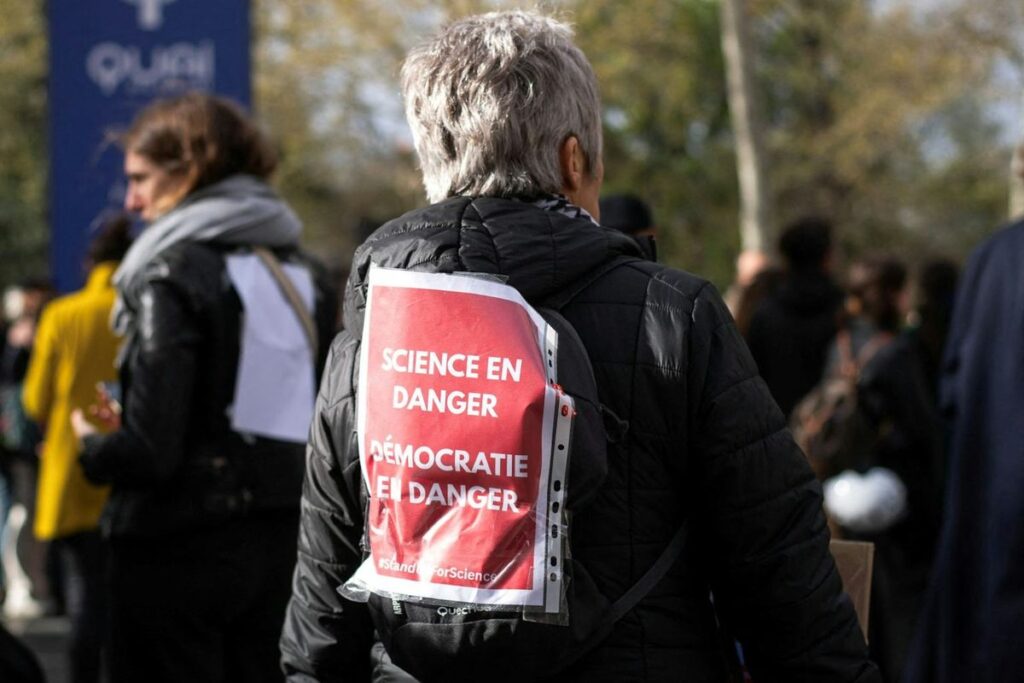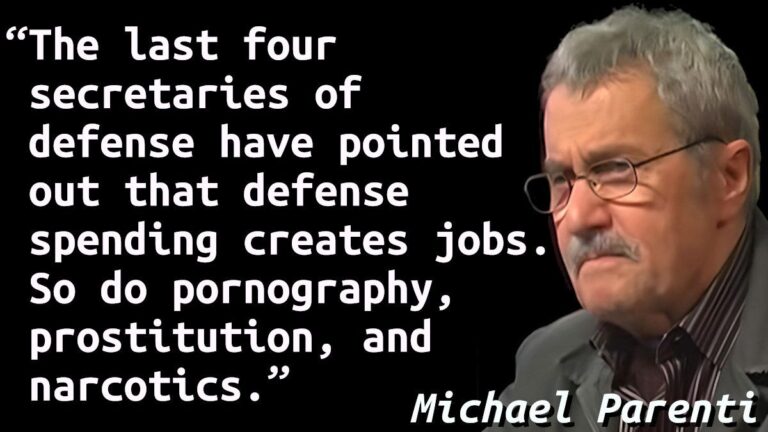
Matthieu Rondel/AFP
Informed Comment by Mehmet Rakipoğlu and İbrahim Özcoşar: Israel’s war on Gaza has provoked outrage across the world. Still, universities – which should be at the forefront of difficult debates on genocide, colonialism, and resistance – have often chosen silence or complicity. Each act of censorship undermines the integrity of scholarship and corrodes democratic values.
At the same time, the heavy-handed repression has sparked a moral awakening. Students and faculty are building new alliances, creating independent platforms, and refusing to be silenced. They are, in effect, constructing a new epistemic common beyond the ivory tower.
This is the paradox of the current moment: Zionist repression in academia has never been more brazen, yet it has also never provoked such determined resistance. The “Epistemological Resistance” is not just a metaphor—it is an unfolding reality, a wave of critical scholarship and peaceful activism challenging entrenched power.
As Edward Said urged, Palestinians must have the permission to narrate their reality – and scholars must have the freedom to teach it. Anything less makes a mockery of the academy. The fight for a free mind is inseparable from the fight for a free people. If the walls of censorship begin to crumble on campus, it may hasten the fall of the walls of oppression beyond.
After all, every revolution begins with a shift in consciousness. And today, on campuses from New York to London, that intellectual resistance has already begun.

Director of the CERI at Sciences Po, Stéphanie Balme, conducted a study for France Universités, an organization whose members are university presidents, titled “Defending and promoting academic freedom.” A global issue, an urgent matter for France and Europe. Findings and proposals for action.” She shares some of her insights here.
Unofficially unveiled on October 2, 2025, US President Donald Trump’s Compact for Academic Excellence in Higher Education is a striking illustration of the politicization of knowledge and the desire for ideological control over scientific output in the United States. Behind the rhetoric of “restoring excellence” lies a new stage in the institutionalization of “sciento-populism”: mistrust of science is being strategically exploited to flatter populist sentiments and turn academics into scapegoats, held responsible for the “decline” of US civilizational hegemony.
This phenomenon, although exaggerated, is not isolated. At the same time as Trump’s announcement, the 2025 edition of the Global Innovation Index (GII) revealed that China had entered the top 10 most innovative nations for the first time, while the US, still in third place, showed signs of structural weakness. Eight European countries, a little-known fact, are among the top 15. France has been downgraded to 13th place, the position occupied by China three years ago.
The GII’s 80 indicators, covering nearly 140 countries, are not limited to measuring technological or scientific performance; they also assess states’ ability to guarantee a comprehensive, free, and secure political-institutional, economic, and financial environment. By cross-referencing these data with those of the Academic Freedom Index, the primary reference tool developed since 2019, we can see that academic freedom is no longer solely threatened in authoritarian regimes. It is now being undermined at the very heart of democracies, affecting the humanities and social sciences as much as the experimental sciences.
The awarding of the 2025 Nobel Prize in Economics to Philippe Aghion, Peter Howitt, and Joel Mokyr is a timely reminder that growth and innovation depend on an ecosystem grounded in freedom of research and the free flow of ideas. Their work on the historical and structural conditions of technological progress shows that no economy can prosper sustainably when knowledge is constrained or subject to ideological control.
Authoritarian regimes and ‘techno-nationalism’
Paradoxically, authoritarian regimes are now among the most prominent investors in research, although they strictly control its objectives to align with their political priorities. Engaged in a phase of rapid “techno-nationalist” development, they are investing heavily in science and technology as instruments of power, without yet suffering the corrosive effects of mistrust of knowledge.
Democracies, on the other hand, struggle to fund research while maintaining their defense spending and must contend with the rise of movements that challenge the very legitimacy of science as it is practiced. To better understand these dynamics, I conducted a study for France Universités titled “Defending and promoting academic freedom: A global issue, an urgent matter for France and Europe. Findings and proposals for action”.
Multiple violations in France
France is a particularly striking example of the vulnerabilities described above. In 2024–2025, attacks on academic freedom took many forms: increased foreign interference, regional public funding made conditional on charters with vague criteria, ideological pressure on teaching and research content, conference cancellations, campaigns to stigmatise teachers and researchers on social media, interventions by politicians even in university boards of governors, restrictions on access to research sites or grants, and finally, an increase in gag orders.
Unlike other fundamental rights, academic freedom in France is distinguished by the absence of a firmly rooted political, professional, and civic culture. Academics who are victims of attacks on their freedom to practice their profession often find themselves isolated, while universities’ institutional capacity to act as a counterweight remains limited.
This vulnerability is exacerbated by dependence on public funding, career insecurity, administrative overload, and a lack of real institutional autonomy. Nevertheless, the current fragility could be transformed into a lever for renewal, promoting the emergence of a strong culture of academic freedom and, in so doing, strengthening France’s position in global science geopolitics.
A multidimensional strategy
The study for France Universités proposes a proactive strategy spanning several complementary areas, targeting four stakeholder groups: the state, universities, civil society, and those at the European level.
The first area concerns strengthening the legal foundation: constitutionalizing academic freedom, reaffirming the autonomy of institutions and the independence of staff, and finally, recognizing the principle of source confidentiality (as for journalists) and incorporating a specific regime into the French research code for sensitive data. It is also proposed to extend the system for protecting the nation’s scientific and technical potential (PPST) to the humanities and social sciences, incorporating risks of interference to reconcile scientific security and freedom.
The second area focuses on action by universities: coordinating national-level initiatives through an independent body, rolling out academic freedom charters across all institutions and research organizations, strengthening the protection of teachers through a dedicated national fund, and establishing rapid-assistance protocols. It also provides for the creation of an independent observatory to monitor violations of academic freedom, training for management and advisers on these issues, and the coordination of legal, psychological, and digital support for academics who are targeted. Finally, this area aims to promote cross-collaboration among security or defense officials, researchers, and teacher-researchers.
The third area aims to promote a genuine culture of academic freedom in the public sphere: launching a national awareness campaign, encouraging student initiatives, transforming France’s Fête de la science (Science Festival) into a Festival of Science and Academic Freedom, organising a national conference to define a participatory action plan, and rolling out a wide-ranging campaign to promote research in partnership with all operators, starting with the National Centre for Scientific Research (CNRS). This campaign, supported by visual aids, posters, drawings, and a unifying hashtag, should celebrate research in all media and highlight its essential role in serving a democratic society.
The fourth and final priority aims to incorporate these measures into European science diplomacy by re-establishing a European ranking of universities worldwide that includes an academic freedom index, and by working to have that included in major international rankings. It also aims to strengthen cooperation between the European University Association and European university alliances, establish a European observatory on academic freedom, create a European talent passport for refugee researchers, and make Europe a safe haven for scientists in danger, with the ultimate goal of obtaining recognition in the form of a Nobel Peace Prize dedicated to academic freedom.
A precious common good
Defending academic freedom is not a corporatist reflex: on the contrary, it means protecting a precious common good and the very condition of a living democracy. Of course, this right belongs to only a small number of people, but it benefits everyone, just like freedom of the press, which in France is guaranteed by the law of 1881. Contrary to popular belief, academics are often the last to defend their professional rights, while journalists, quite rightly, actively protect theirs.
The French university system, as it has been constructed since 1945, and even more so after 1968, was not designed to confront authoritarianism. Today, French institutions would not be able to resist systematic attacks for very long if a populist and/or authoritarian regime came to power. Powerful, wealthy, and autonomous, the Ivy League universities themselves faltered in the face of the MAGA movement and are still struggling to recover. Many US scientists are now moving to Europe, Japan, or South Korea.
How, then, could French universities, which are both financially and institutionally dependent and have only recently established alumni associations, cope with such an onslaught? Not to mention that this would ultimately spell the end of the ambition behind the EU’s Choose Europe for Science program.
Despite the gravity of the situation, it opens up unprecedented opportunities for collective action, democratic innovation, and the development of concrete solutions. Now is the time to act collectively, coordinate stakeholders, and launch a broad French and European campaign in support of academic freedom: this is the purpose of the study I conducted.
Stéphanie Balme, Director, CERI (Centre de recherches internationales), Sciences Po
This article is republished from The Conversation under a Creative Commons license. Read the original article.




Comments are closed.